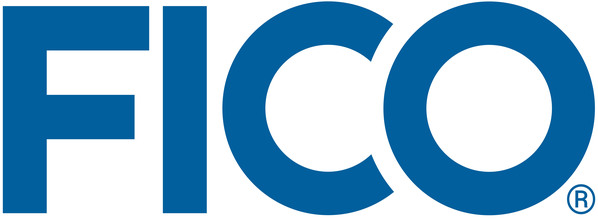FICO Survey: Complexity and Cost of Validating Digital Banking Customers Top Pain Points for Lenders in the Philippines

50 percent of Philippine banks say processes are still too manual
MANILA,Phillippines,Oct. 20,2020 --
Highlights:
The FICO Identity in Digital Banking Survey examines how banks in the Philippines are approaching the validation of a customer's identity during origination
50 percent of Philippine banks said the high level of manual handling was the key challenge when validating a customer's identity
Forcing Filipino consumers to leave their chosen channel will lose a bank business.
Authentication strategies at Philippine banks are driven more by security than by regulation
FICO,a global analytics software firm,has released its Identity in Digital Banking Survey,which found that the complexity and cost of validating the identity of digital banking customers are the top pain points for banks in the Philippines.
Almost 50 percent of respondents surveyed nominated the 'high level of manual processes to validate customer identities' as their top challenge along with 'consistent collection of supporting data/documents' and the 'need for physical validation of identity'. The 'time taken to verify identity' and the 'cost of third-party verification services' were nominated by more than 40 percent of respondents.
More information:https://www.fico.com/en/latest-thinking/ebook/malaysia-and-philippines-banking-survey-2020
"Identity challenges are intensifying with digital banking," said Subhashish Bose,FICO's lead for fraud,security and compliance in Asia Pacific. "You can see from the survey that many Philippine banks still have issues with manual processing that slows down the process,introducing friction into digital applications," said Bose. "Indeed,a third of banks still force customers to go to a branch to open a personal bank account. However,lenders will need to shift toward identity verification that is seamlessly integrated into the digital application process and can be rapidly confirmed or risk losing business."
FICO's previous consumer studyfound that a large percentage of Filipinos (45 to 67 percent,depending on the action required) said they should be able to complete all aspects of account opening online or on their phone. In fact,if all actions required to complete an account opening could not be accomplished in-session,only 41 percent of Filipino consumers said they would carry out the necessary offline actions as soon as possible. A further 13 percent said they would try a competitor while 5 percent said they would give up completely.
"Filipinos are comparing their banking experience not just to other lenders but to other digital businesses," said Bose. "The notion that banks can afford to ignore delivering the kind of instant gratification delivered by companies like Uber,Netflix,and Amazon just because they are selling financial products will disappear this decade."
Concerns about Authentication
Authentication strategies at Philippine banks are driven more by security than by regulation; concern over the sophistication (50 percent) or volume (29 percent) of attempts to breach access controls is much higher than in the other seven countries surveyed,where,on average,concern levels for sophistication are 43 percent,and volume 30 percent.
This can partly be explained by fewer and less onerous guidelines or legislation around authentication such as those in the US,Canada,and Europe. However,if criminals are successful it will be only a short time before Filipino regulators impose more rules around authentication.
"Another issue here is that many banks in the Philippines are not making separate fraud and authentication decisions," said Bose. "They are less concerned with user experience and therefore will ask a customer to authenticate again for a particular action which they consider high risk,even if they have already been identified in the same session."
Technology challenges are also impacting the ability of Philippine banks to authenticate customers. The survey revealed that banks feel the time taken for systems change is a problem (45 percent),as well as inflexibility around identity approaches (45 percent). This may be due to rapid innovations in authentication and the number of technologies deployed (biometric authentication,for example,is deployed in 93 percent of respondents).
"Philippine banks areoften torn between the deployment of multiple point solutions that require integration and broader platforms that span authentication but don't play well with third-party systems," said Bose. "New-breed platforms that allow innovation with AI and integrate more widely are now seen as the next step. A strategic consolidation is needed,and banks will have to determine which technologies are proving effectiveboth internally and with customers to gain an edge over their competition."
The survey showed that adoption of this strategic approach is already underway. While only 7 percent of banks say they currently have a common identity management platform or orchestration layer,78 percent of banks say that they have ambitions to make the move within the next three years
FICO's Identity in Digital Banking Survey was produced by Omdia via an online study with 172 banks in May 2020. Executives who had direct involvement in their institution's approach to identity and authentication for digital banking channels were surveyed. The countries surveyed were: Canada,Colombia,Germany,Malaysia,Mexico,Philippines,UK and the USA. 14 Philippine and 15 Malaysian bank respondents with a minimum of 500k customers were surveyed,and more than one-third of respondents had over 10 million customers.
About FICO
FICO (NYSE: FICO) powers decisions that help people and businesses around the world prosper. Founded in 1956 and based in Silicon Valley,the company is a pioneer in the use of predictive analytics and data science to improve operational decisions. FICO holds more than 195 US and foreign patents on technologies that increase profitability,customer satisfaction and growth for businesses in financial services,manufacturing,telecommunications,health care,retail and many other industries. Using FICO solutions,businesses in more than 100 countries do everything from protecting 2.6 billion payment cards from fraud,to helping people get credit,to ensuring that millions of airplanes and rental cars are in the right place at the right time.
Join the conversation on Twitter at @FICOnews_APAC.
FICO is a registered trademark of Fair Isaac Corporation in the US and other countries
Logo - http://cusmail.com/res/2023/07-23/22/3cfb910b67bdc90e100431d76c69bbf7.jpg